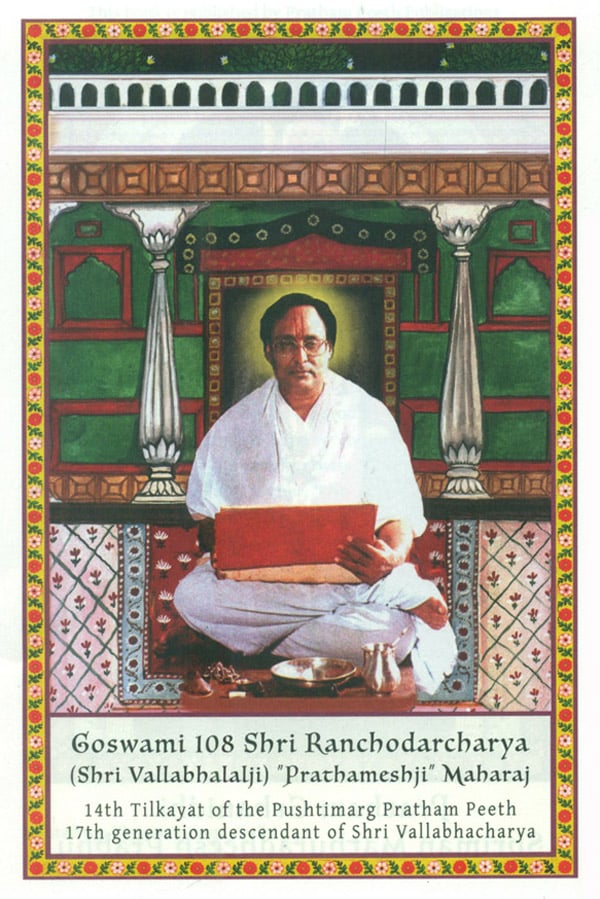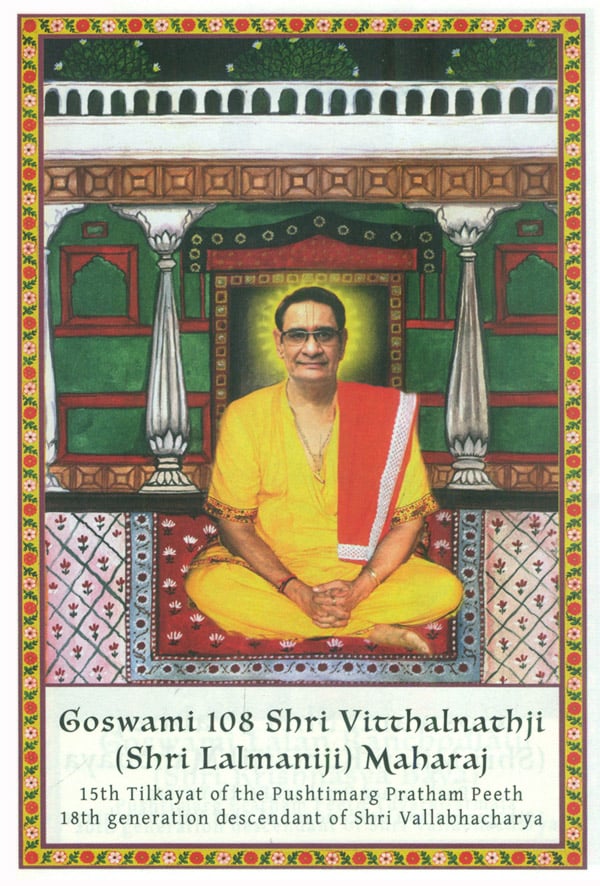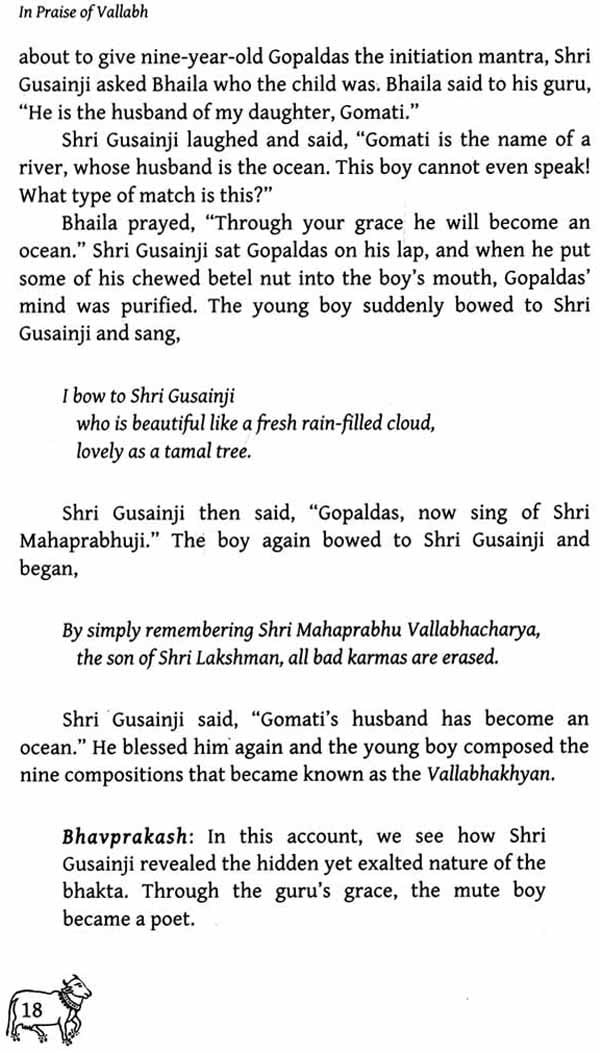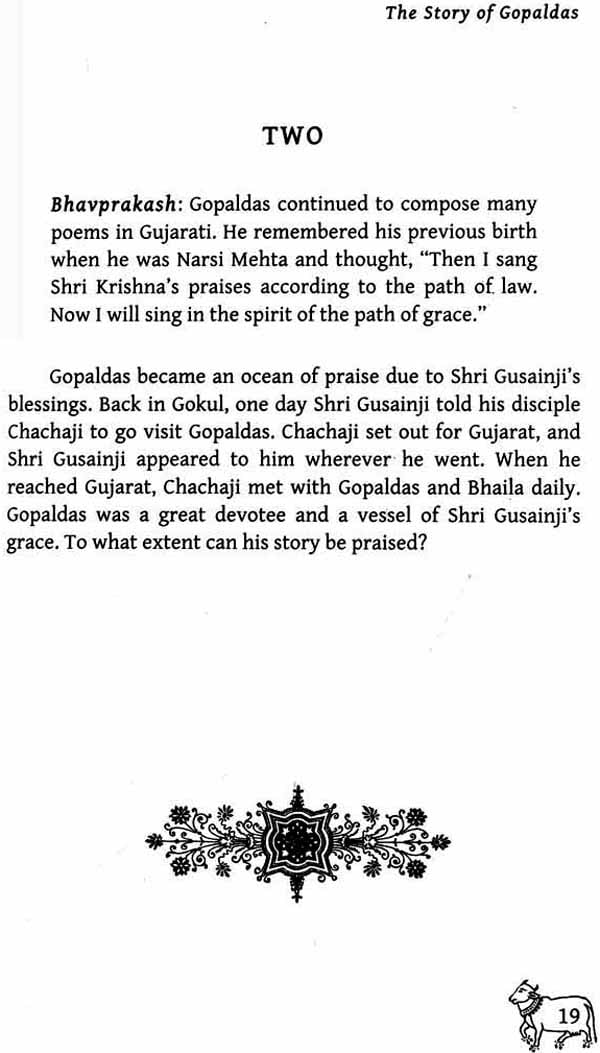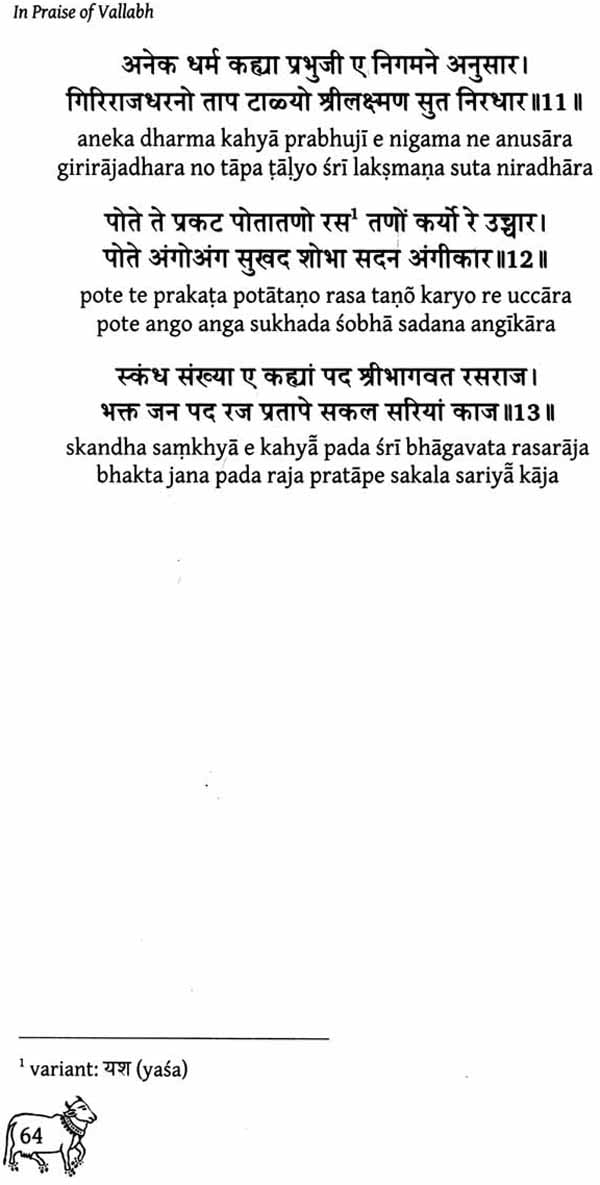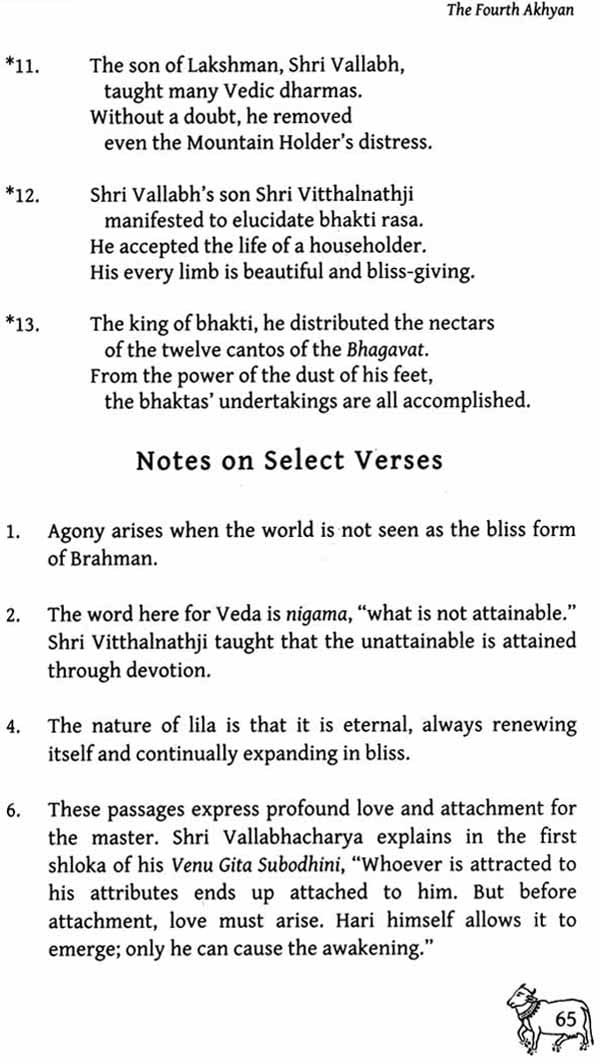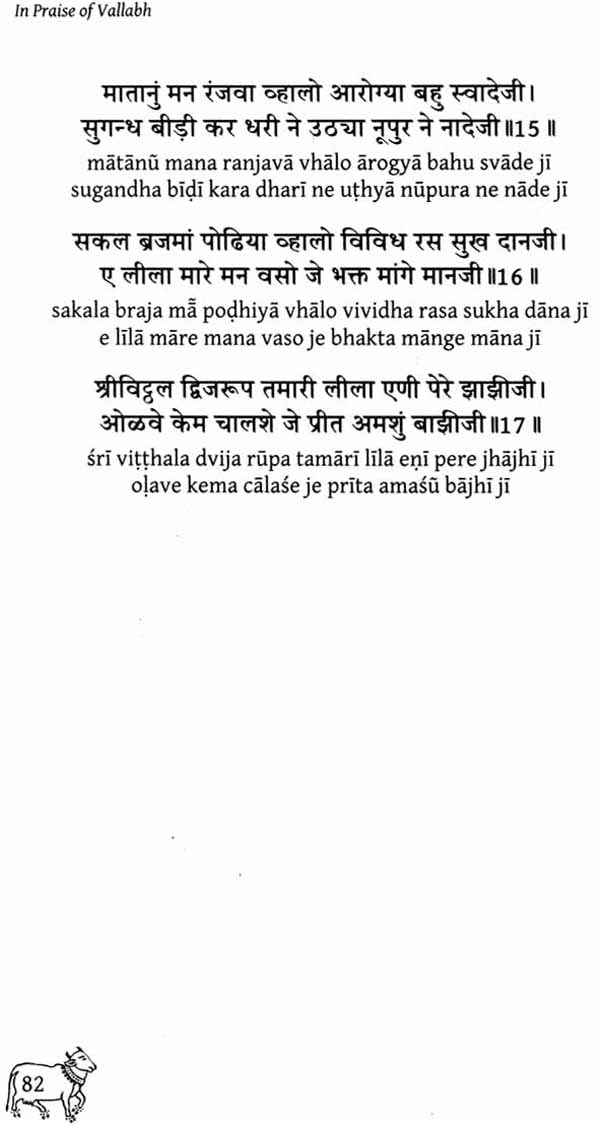
In Praise of Vallabh (The Vallabhakhyan of Gopaldas)
Book Specification
| Item Code: | NAP114 |
| Author: | Translated by Shyamdas Edited by Vallabhdas |
| Publisher: | Pratham Peeth Publications |
| Language: | Sanskrit Text With Transliteration and English Translation |
| Edition: | 2017 |
| ISBN: | 9780982538340 |
| Pages: | 117 |
| Cover: | Paperback |
| Other Details | 8.5 inch X 5.5 inch |
| Weight | 200 gm |
Book Description
Shyamadas (1953-2013), author, teacher, kirtan singer and beloved friend to so many, traveled to India in 1972 to meet the saint Maharaji Neem Karoli Baba and fell in love with Braj, the land of Radha Krishna lila. Shyamadas’s devotional life further blossomed under the guidance of his guru, Goswami Shri Prathameshji, head of the Pushtimarga Pratham Peeth.
Since the1980, Shyamadas’s insightful translations have brought the spiritual writings of the Pushti bhakti masters to life for English readers around the world.
Other than the holy sands of Braj, the sacred Govardhan Hill and the divine meandering Yamuna River, what has brought me back to this region again since the 1970s is the association I find here with saints and bhaktas (devotees) who are also drawn to this amazing land. Satsang with bhaktas is pure association. It is to enjoy the company of kindred souls and revel in the dialogue and exchange. Mere contact with such beings can create a spiritual rebirth not so easily awakened through any other practices.
The tradition of satsang prevails in the Braj region. It is what pulls me to Gokul, where much of my time has been spent in small rooms behind crumbling palace walls. Satsang is hidden from public view, tucked away from the loudspeakers and pan shops of the bazaar. The spirit of satsang is infections. Obstacles such as no running water, scant electricity, extreme weather and notoriously bothersome monkeys are all a pittance to pay for the fine spiritual fellowship I have found here. Satsang is not merely a recitation of a holy text. It arises when the speaker and the listener have arrived at the same karmic point and share similar spiritual addictions. In satsang, they glow. For a bhakta, the sacred imagination, always original and devoid of shallow whim. It emulates enlightened bhakti lineage. Like a wet cloth soaks a dry one, satsang drenches one heart and then another with devotional elixir. When you hear something refined, uplifting and lyrical repeated again and again. It takes effect even if you don’t totally grasp its meaning.
I have spent many years in this pilgrim guesthouse in Gokul, listening to the satsang of the bhaktas who live downstairs. The monkeys bars in their windows and mine are the only barriers between us. The sweet fragrance of their bhakti-soaked voices wafts into my roomat about 4:30 a.m. and continues throughout the day and late into the night. Their voices have nourished me. They are my inspiration for undertaking this translation of Gopaldas’ 16th century Vallabhakhyan, originally composed in Gujarati. The bhaktas downstairs recite the Vallabhakhyan every evening. While hearing their song I look up towards the Vrindavan sky, where Shri Krishna resides as the moon, and I taste a bit of what they have been living. If a small portion of that essence appears in this wirk, then my efforts in this joyful undertaking have been well spent.
| Introduction | 1 |
| Shri Vallabhacharya and his Teaching | 3 |
| Raga and Ninefold Devotion | 13 |
| The story of Gopaldas | 17 |
| The First Akhyan: Brahman | 21 |
| The Second Akhyan: Shri Vallabhacharya | 37 |
| The Third Akhyan: Shri Vitthalnathji | 51 |
| TheFourth Akhyan: Guru | 61 |
| The fifth Akhyan: Lila | 69 |
| The Sixth Akhyan: Darshan | 77 |
| The Seveth Akhyan: Seva | 87 |
| The Eighth Akyan:Divine Householder | 99 |
| The Nnth Akhyan: vallabh's Family | 111 |
